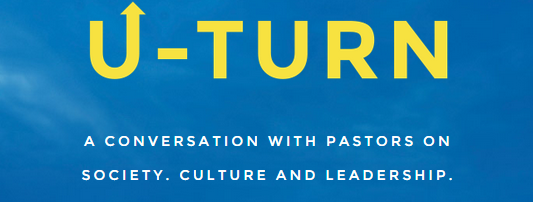 As noted in January, David Barton is speaking at Lancaster Bible College on March 19. A group called the Pennsylvania Pastor’s Network is listed as sponsor of the U-Turn conference, named after Barton’s book with George Barna (who is also slated to appear). Even though I have lived in PA for 20 years, I knew almost nothing about them. My initial thought is the PPN might be mainly the people advertising the event, and that seems to be the case.
As noted in January, David Barton is speaking at Lancaster Bible College on March 19. A group called the Pennsylvania Pastor’s Network is listed as sponsor of the U-Turn conference, named after Barton’s book with George Barna (who is also slated to appear). Even though I have lived in PA for 20 years, I knew almost nothing about them. My initial thought is the PPN might be mainly the people advertising the event, and that seems to be the case.
According to Capstone Legacy Foundation operations manager, Kevin McKay, the PPN is a ministry affiliate of the Foundation but is not financially supported by it. McKay told me that Capstone does not exert operational control over the network. He declined to offer comment about Barton’s appearance on behalf of their ministry affiliate. The PPN is not incorporated and does not file a 990 form with the IRS, rather Capstone files for them.
I asked the PPN how many pastors made up their network but they did not provide a specific answer. Instead, PPN’s Amy Baisley told me that the network is a new effort and is “in communication with thousands of pastors.” However, there is no evidence that being “in communication” with many pastors translates into membership or involvement in the work of the PPN or parent group, the American Pastor’s Network. Currently, the PPN is one of three affiliates of the APN. PPN did not answer repeated requests for membership numbers. My perception based on their response to my inquiries is that the network is quite small.
I asked CEO of the PPN and the APN, Sam Rohrer, why he decided to invite David Barton to headline the conference as an historian in light of the controversy surrounding the accuracy of his historical claims. As an illustration, I used the removal of the The Jefferson Lies from publication by Thomas Nelson. In response, Rohrer told me:
Let me say that I appreciate you taking the time to express your concern about David Barton being part of the March 19 conference. Like you and me who write and speak a lot, we know how easy it is to for opponents or even overly zealous well intentioned people to parse a person’s words, and make a mountain out of a mole hill. The case that you cite is quite old, known by very few, discounted by most and without merit. I have personally talked with key people on this matter over the years and find the concerns to be short on substance and absent of malicious intent.
There is no one I’ve ever met who embraces Truth and integrity – including Jesus Christ – who hasn’t had someone try to build a case against them at some point. I believe that David is the kind of man that if he would ever mistakenly make an inaccurate statement that he would do his best to acknowledge it, make it right and go on. If only all those in positions of leadership would determine to do the same.
I asked the Capstone Legacy Foundation a similar question since the PPN is a ministry affiliate and they offered no comment.
It is hard to take Sam Rohrer’s comment seriously. Barton’s book was pulled less than three years ago in 2012. Rohrer has not talked to Jay Richards or me or anyone who could provide the rest of the story on the matter. However, I suppose this display of confirmation bias may help explain how Mr. Barton continues to be revered within certain evangelical circles while the rest of the world scratches their heads.
One of the reasons I continue to track Barton’s claims is because it makes a fascinating study in confirmation bias and in-group loyalties. I continue to be amazed at how Barton can make easily debunked claims like crime has gone up 694% since 1963 and that he played basketball at Oral Roberts University and that the Constitution quotes the Bible verbatim, and so many more without arousing concern among his true believers.
Barton recently worked with Rohrer on the PPN’s Ukraine Initiative. This close working relationship and the fact that Barton endorsed Rohrer for governor in the 2010 Republican primary argues against Rohrer being able to be objective regarding his ally.
For more information about the event, click here.